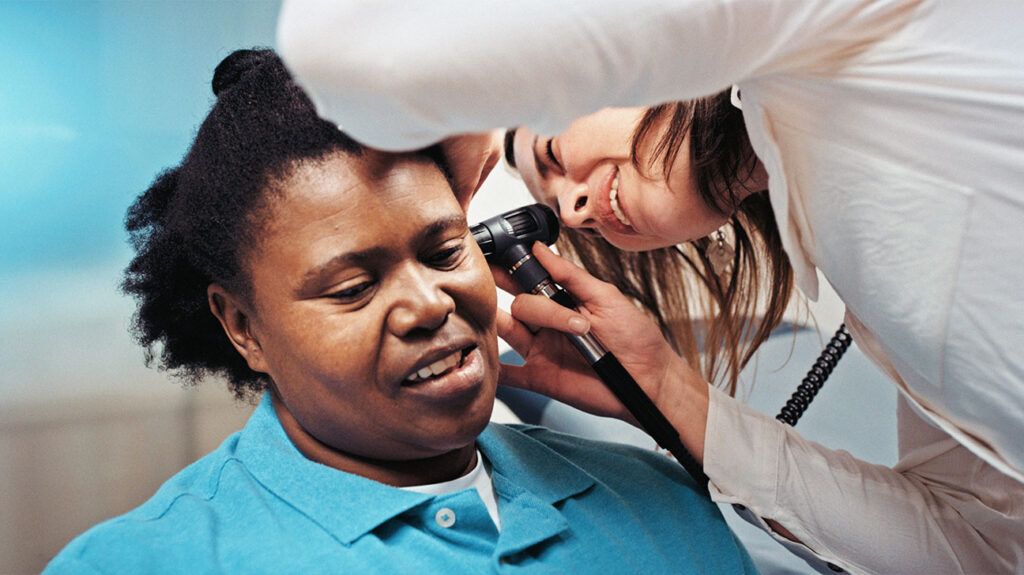Exposure to cigarette smoke, including passive smoke exposure in children, may contribute to or increase the risk of ear infections.
Smoking and exposure to secondhand cigarette smoke can have harmful effects on health. Cigarette smoke contains many toxic substances and can raise the risk of infections.
Smoking may increase the risk of problems in the middle ear, which may lead to ear infections. Passive smoking may increase the risk of ear infections in children.
Quitting smoking may help prevent further adverse effects on health from cigarette smoke.
This article looks at the link between smoking and ear infections, symptoms and treatments of ear infections, as well as support for quitting smoking.

Research has shown that smoking can cause harm to the middle ear and the eustachian tube, which connects the middle ear to the back of the nose. As a result, this may increase the frequency of middle ear infections.
According to a 2020 study, exposure to passive smoking can raise the risk of otitis media, an ear infection of the middle ear, in children. The study also suggests that cigarette smoke can cause dysfunction of the eustachian tube.
Cigarette smoke may cause otitis media and delay the healing process, as per a
Smoking can also weaken the immune system. Long-term smoking and smoking in high doses
An ear infection may cause:
- ear pain
- fever
- muffled hearing
- drainage from the ear
- difficulty sleeping
- headache
- sore throat
Ear infections are
- tugging or pulling at the ear
- irritability
- poor feeding or loss of appetite
- vomiting
- diarrhea
If people think they may have an ear infection, they can contact a doctor. If a child has signs of an ear infection, it is best to contact a doctor if they have
- a fever of 102.2°F (39°C) or above
- drainage or discharge from the ear, such as pus or fluid
- symptoms worsen or last for more than 2–3 days
- any signs of hearing loss
- any other severe or concerning symptoms
A doctor will assess any symptoms and examine inside the ear to check for signs of infection.
The immune system might get rid of an ear infection by itself, without medical treatment. If an infection persists or is severe, doctors may prescribe antibiotics.
Alongside any treatment a doctor recommends, people can help support recovery with:
- resting
- drinking plenty of fluids
- taking over-the-counter (OTC) medications to ease pain or a fever
Stopping smoking and avoiding secondhand smoke may
According to the American Lung Association, as soon as people quit smoking, the body begins to repair itself. The benefits of quitting can start within as little as 20 minutes after stopping smoking and continue years later.
People can talk with a healthcare professional for help quitting smoking. Individuals may also find the following resources helpful:
This section answers some frequently asked questions about smoking and ear infections.
Why does my ear hurt after smoking?
Regular exposure to cigarette smoke may contribute to the development of ear infections of the middle ear, which can cause ear pain over time.
Cigarette smoke
What causes ear infections?
Bacteria and viruses can cause infections of the middle ear. The
Research also links cigarette smoke exposure to the development of middle ear infections.
Another possible cause of an ear infection is getting water stuck in the ear. If water stays in the outer ear canal for too long, it can cause a bacterial ear infection called otitis externa, or swimmer’s ear.
Swimmer’s ear is an infection in the outer ear canal and is different from a middle ear infection. There is no known link between smoking and outer ear infections.
Cigarette smoke and passive smoke exposure may increase the risk of middle ear infections. Cigarette smoke may block the eustachian tube, leading to a buildup of mucus and bacteria.
Ear infections may cause ear pain, fever, headache, and ear discharge. In children, signs of an ear infection may include tugging or pulling at the ear, irritability, and poor feeding.
People will need to contact a doctor if an ear infection persists for more than a few days or if there are any concerning or severe symptoms. In some cases, people may need antibiotic treatment.
Quitting smoking may help prevent further negative health effects of smoking or passive smoking. People can talk with a healthcare professional for support.
